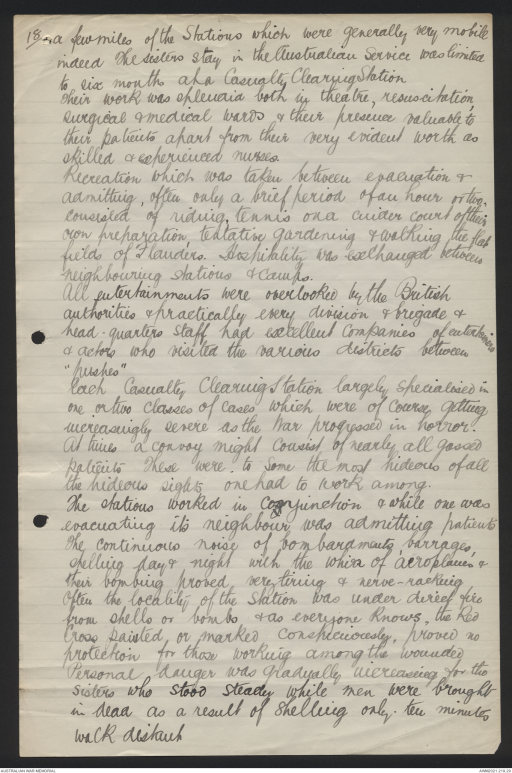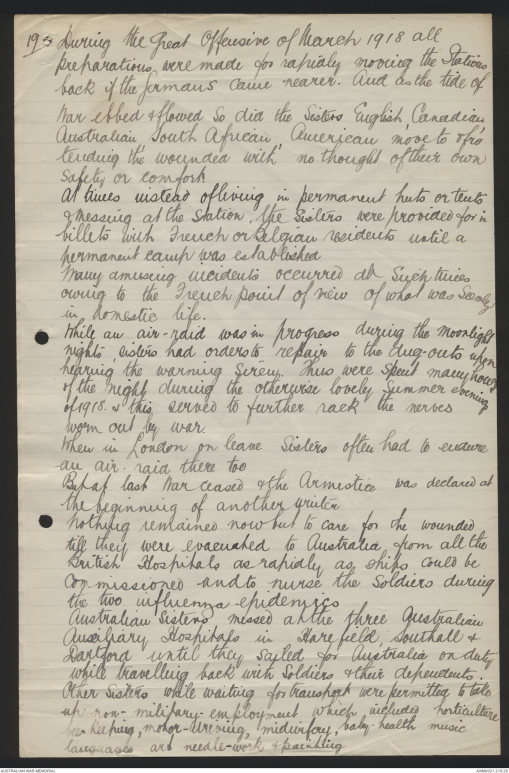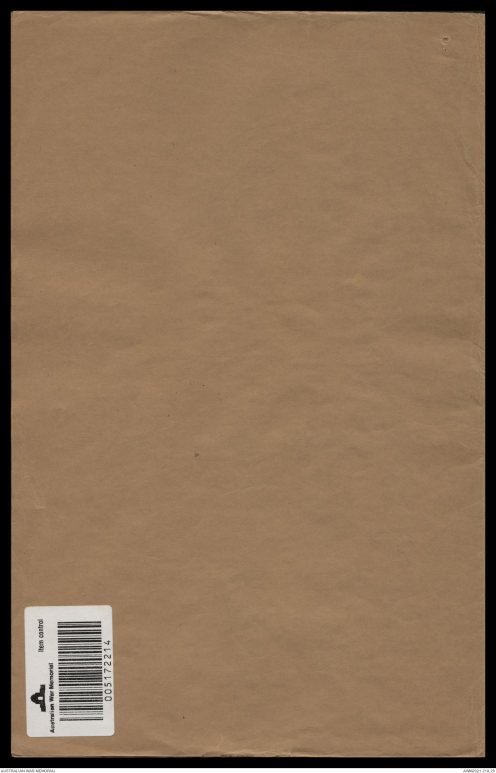AWM41 969 - [Nurses Narratives] Sister G Douglas - Part 3



18/ a few miles of the Stations which were generally very mobile
indeed The sisters stay in the Australian Service was limited
to six months at a Casualty Clearing Station.
Their work was splendid both in theatre, resuscitation,
surgical & medical wards & their presence valuable to
their patients apart from their very evident worth as
skilled & experienced nurses.
Recreation which was taken between evacuation &
admitting, often only a brief period of an hour or two ,
consisted of riding, tennis on a cinder court of their
own preparation, tentative gardening & walking the flat
fields of the Flanders. Hospitality was exchanged between
neighbouring station & camps.
All entertainments were overlooked by the British
authorities & practically every division & brigade &
head-quarters staff had excellent Companies of entertainers
& actors who visited the various districts between
"pushes".
Each Casualty Clearing Station largely specialised in
one or two classes of cases which were of course getting
increasingly severe as the war progressed in horror.
At times a convoy might consist of nearly all gassed
patients. These were to Some the most hideous of all
the hideous sights one had to work among.
The stations worked in cojnjunction & while one was
evacuating its neighbour was admitting patients.
The continuous noise of bombardments, barrages,
shelling day & night with the whirr of aeroplanes &
their bombing proved very tiring & nerve-racking
Often the locality of the Station was under direct fire
from shells or bombs & as everyone knows, the Red
Cross painted or marked conspicuously, proved no
protection for those working among the wounded
Personal danger was gradually increasing for the
sisters who stood steady while men were brought
in dead as a result of shelling only ten minutes
walk distant
19/ During the Great Offensive of March 1918 all
preparations were made for rapidly moving the Stations
back if the Germans came nearer. And as the tide of
war ebbed &flowed So did the Sisters English, Canadian,
Australian, South African, American move to & fro
tending the wounded with no thought of their own
safety or comfort.
At times instead ofliving in permanent huts or tents
& messing at the station, the Sisters were provided for in
billets with French or Belgian residents until a
permanent camp was established
Many amusing incidents occurred at Such times
owing to the French point of view of what was seemly
in domestic life.
While an air-raid was in progress during the moonlight
nights, sisters had orders to repair to the dug-outs upon
hearing the warning Sirens. Thus were spent many hours
of the night during the otherwise lovely summer evenings
of 1918 & this served to further rack the nurses
worn out by war.
When in London on leave Sisters often had to endure
an air-raid there too
But at last war ceased & the Armistice was declared at
the beginning of another winter.
Nothing remained now but to care for the wounded
till they were evacuated to Australia from all the
British Hospitals as rapidly as ships could be
Commissioned and to nurse the Soldiers during
the two influenza epidemics
Australian Sisters messed at the three Australian
Auxiliary Hospitals in Harefield, Southall &
Dartford until they sailed for Australia on duty
while travelling back with Soldiers & their dependants.
Other Sisters while waiting for transport were permitted to take
up non-military employment which included horticulture,
bee keeping, motor-driving, midwifery, baby health music
language and needlework & painting.
Australian War Memorial Item control
005172214
 Sam scott
Sam scottThis transcription item is now locked to you for editing. To release the lock either Save your changes or Cancel.
This lock will be automatically released after 60 minutes of inactivity.